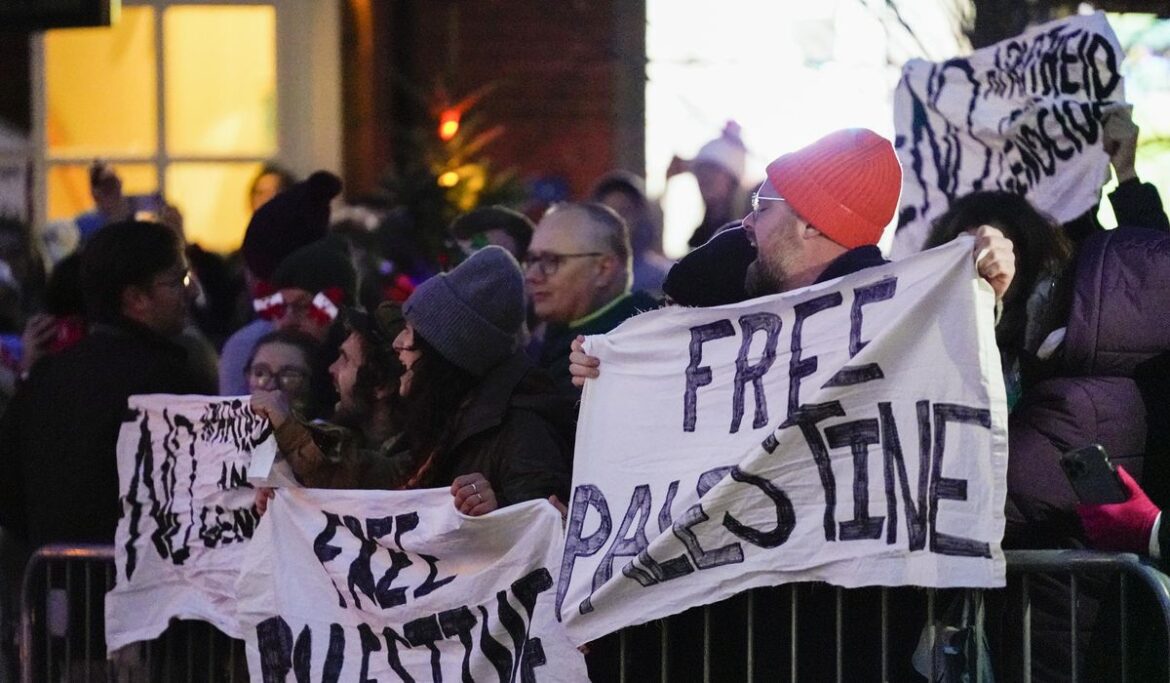OPINION:
In music, the pauses between notes can sometimes be as important to the music as the notes themselves. The pauses add poignancy and drama to the melodies generated by the notes. They provide context and content. This is also true with words, whether oral or written.
In recent weeks, I have been reminded of this phenomenon as I have observed the multitude of demonstrations by pro-Palestinian protesters. Invariably, those demonstrations have been accompanied by the chanting of the slogan that has become the byword for those who express support for Hamas in the aftermath of the Oct. 7 massacre in Israel.
That slogan is, of course, “from the river to the sea, Palestine will be free.” It has reverberated across college campuses and urban centers, cited endlessly in newspapers and news broadcasts.
Even a cursory consideration of the slogan, however, suggests that it is not the words of the slogan that are important but rather the words that are omitted from the slogan.
Obviously, there are no specific references identifying the river and sea in question. But it is beyond doubt that the river is the Jordan River and the sea is the Mediterranean Sea. The land, however, is not “Palestine,” but the state of Israel.
That the slogan ends as it does is of far greater significance. The phrase “will be free” is importantly lacking a prepositional phrase that would provide necessary clarity.
As it is used in the slogan, the word “free” is either an adjective or an adverb. It modifies either a condition or an action. Dictionaries offer us several definitions of “free” when used. If it is used as an adjective, it can refer to a right to self-governance, suggesting an absence of constraints, restrictions or controls. When used as an adverb, it can mean the removal of an obstruction or of an unwanted feature.
If the authors of the slogan had intended for the word “free” to be unambiguous, a prepositional phrase should have been provided following the word “free” because that missing prepositional phrase is actually the most critical component of the slogan.
The words missing from this phrase are really at the core of the slogan itself and serve to demonstrate its true intent. So, what are they, and why are they left out?
A brief analysis discloses precisely why the prepositional phrase is omitted. After all, it is unlikely that the exponents of the slogan really meant to incorporate a political definition of freedom in it. Were that the case, then the demonstrators might have had to specify why they believe that the geographic area to which they refer needs to achieve such political freedom.
It is apparent to anyone willing to look objectively that political freedom is rare in the Muslim Arab world; that in that world, notions of personal freedom hardly abound. Human rights are also not exactly at the forefront of the political agendas of the nations surrounding the region from the river to the sea.
It is evident that, in the Middle East, only in Israel are residents the beneficiaries of the kinds of political rights that we would associate with the Western concept of freedom.
Arab residents of Israel, like their Jewish counterparts, benefit from rights that are simply nonexistent in most Muslim-majority nations. They are free to hold whatever beliefs they choose and to participate in all aspects of life, including as members of the Knesset, as judges in the judiciary, as professors in universities, and in the professions as well as in commercial activities. Women are fully equal to men, and those with different sexual tendencies can live unhindered.
As a consequence, it seems highly unlikely that any of the pro-Palestinian demonstrators seriously believe that the change for which they are calling can possibly result in greater freedom for anyone, even for residents of the so-called occupied territories.
The alternative definition of “free,” the only one that can plausibly be applied, suggests a desire to remove something. That the all-important prepositional phrase is omitted must then evidence a reluctance to openly indicate precisely what it is that the demonstrators wish to have removed from the area in question. The answer is self-evident, of course. The demonstrators want the area to be “Judenrein,” to use the Nazi formulation; in other words, to be “free of Jews.”
The truth emerges from the comportment of those who espouse this slogan. It is clearly not a regime of political equality or of fewer constraints on conduct that the demonstrators are seeking. Rather, they are expressing the aspiration that a group of people — Jews — will be removed from the area between the river and the sea. Their true goal is not freedom, but rather expulsion, exclusion, and the end of freedom for the vast majority of the region’s residents.
By omitting the words that would overtly articulate their true goal, the demonstrators are seeking to disguise their intent. This is not merely emphasizing a meaning through the absence of words; rather, it is an intentional act of dissimulation. The absent notes now define the tune, and the tune is assuredly not melodious. It is both discordant and detestable.
• Gerard Leval is a partner in the Washington office of a national law firm. He is the author of “Lobbying for Equality: Jacques Godard and the Struggle for Jewish Civil Rights During the French Revolution,” published by HUC Press.


